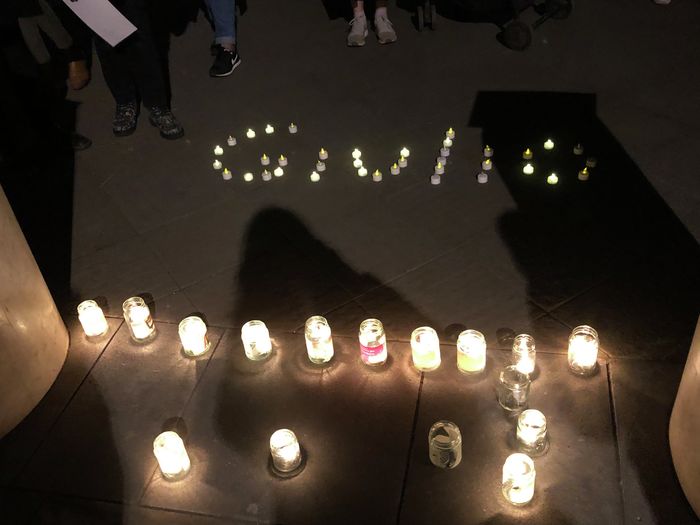Italy charges members of Egypt’s national security agency over the murder and kidnapping of Giulio Regeni
The men are expected to be tried in absentia in Italy for the murder of the Cambridge doctoral student

Italian prosecutors have charged four members of Egypt’s national security agency over the murder and kidnapping of Giulio Regeni, an Italian doctoral student studying at Cambridge at the time of his disappearance.
Regeni disappeared on January 25th in 2016 from Cairo where had been researching independent trade unions in Egypt. His body was found in a ditch at the outskirts of Cairo nine days later.
Tariq Saber, Athar Kamel Mohamed Ibrahim, Capt Uhsam Helmi and Maj Magdi Ibrahim Abdelal Sharif are accused of kidnapping the student in 2016, while Sharif is also accused of grievous bodily harm and murder.
A fifth member, Mahmoud Najem, was also named as a suspect but charges against him have been dropped.
Despite signs of torture on Regeni’s body, Egyptian police originally claimed that the cause of death had been a car accident. Egyptian authorities have continued to deny any involvement with Regeni’s death, and have instead suggested that his death may have been a consequence of criminal gang activity. However, Italian officials have called this explanation “implausible”.
In late November, Egypt’s public prosecution announced that they are “temporarily closing” the investigation into Regeni’s muder, with the killer “still unknown.” They also claimed that any accusations against Egyptian security officials were based on “individual acts by them, with no connection to any official institutions in Egypt.”
The four suspects are expected to be tried in absentia in Italy. Any move to extradite the men would probably require their detention in Egypt. The men also risk detention under Interpol’s red notice system if they travel outside of Egypt.
Nicola Canestrini, an Italian criminal defence attorney and specialist in international law told The Guardian that, for the trial to be fair, the Italian authorities must exhaust all possible efforts to ensure that the suspects are fully informed about the trial before declining to attend. He stated that “if they [the accused]don’t show up in Italy it means they voluntarily decided not to defend themselves.”
The University has come under fire during the investigation into Regeni's disappearance and death. Regeni’s supervisor, Dr Maha Abdelrahman, was questioned by the British police on behalf of Italian magistrates after Regeni’s body was found and criticised by Italian paper La Repubblica for pressuring Regeni into his research. However, the article in La Repubblica was quickly condemned, with 334 academics - including 32 from Cambridge - writing to The Guardian to call the allegations “malicious and unfounded”.
The University has also been criticised by multiple Italian officials for its lack of cooperation and its failure to protect Regeni. In August 2016, Italian prime minister, Matteo Renzi, said the University’s “silence” on the issue was “inexplicable”. Over a year later in November 2017, he returned to this theme, saying that those who worked with Regeni prior to his death “could be hiding something”.
However, a University spokesperson stressed toVarsity that “The loss of Giulio has had a profound effect on people in Cambridge, in Italy and beyond. We are part of a world-wide community demanding truth and justice for Giulio and his family.”
Meanwhile Cambridge University Amnesty International (CUAI) has actively been involved in the “Truth for Giulio” campaign, demanding that those responsible for Regeni’s murder are brought to account. CUAI told Varsity: “It is possible that the suspects might never be brought to account for their crimes, given the absence of an extradition treaty between Italy and Egypt, and the unwillingness of the Egyptian authorities to cooperate with Italian investigators since Regeni’s death. However, the move to charge them does represent a significant step in the accountability of the Egyptian state, and its continued violation of human rights.”
Within Cambridge, CUAI alongside Cambridge UCU, Amnesty International Cambridge City Group and other supporters have organised annual vigils on King’s Parade to honour Regeni and demand further progress on his case. According to CUAI, “[t]his vigil, along with hundreds of other vigils across Italy, serves as a reminder to the British, Italian and Egyptian governments that we have not forgotten Giulio, and that we request the truth about the circumstances leading to his disappearance and death.” Vigils have also annually been held outside the Egyptian Embassy in London.
 Comment / Cambridge’s tourism risks commodifying students18 April 2025
Comment / Cambridge’s tourism risks commodifying students18 April 2025 News / Cambridge student numbers fall amid nationwide decline14 April 2025
News / Cambridge student numbers fall amid nationwide decline14 April 2025 News / Greenwich House occupiers miss deadline to respond to University legal action15 April 2025
News / Greenwich House occupiers miss deadline to respond to University legal action15 April 2025 Comment / The Cambridge workload prioritises quantity over quality 16 April 2025
Comment / The Cambridge workload prioritises quantity over quality 16 April 2025 News / Varsity ChatGPT survey17 April 2025
News / Varsity ChatGPT survey17 April 2025





